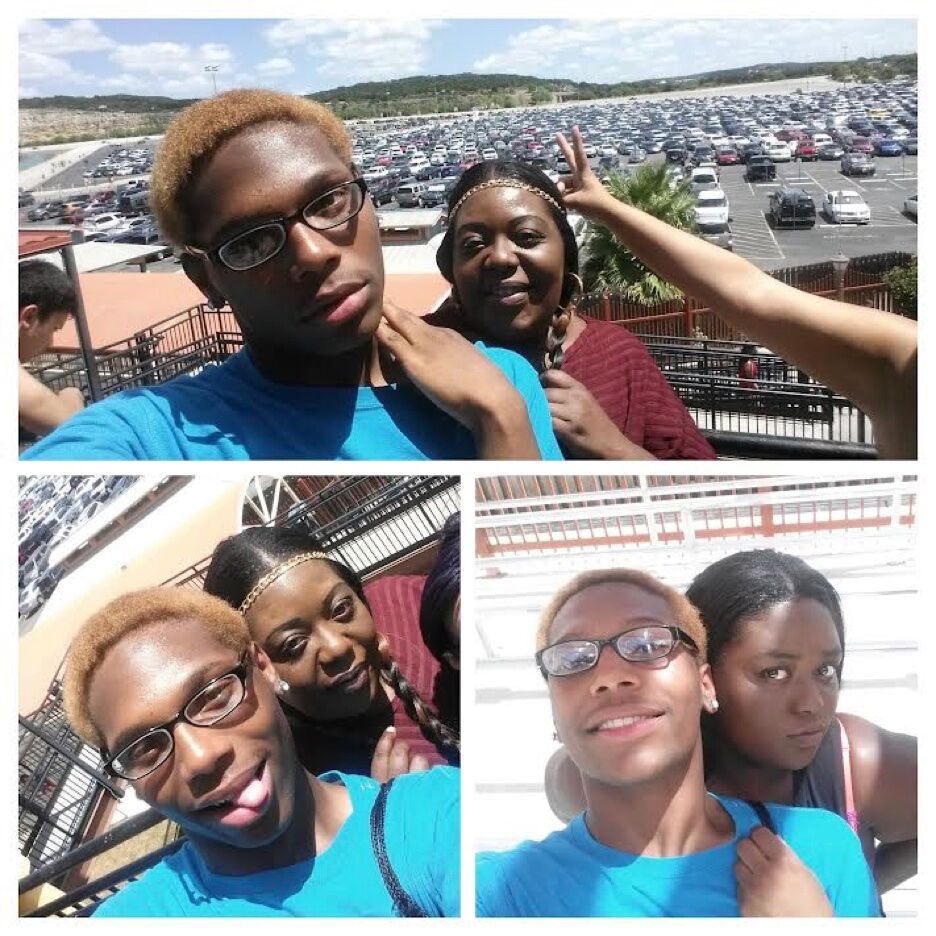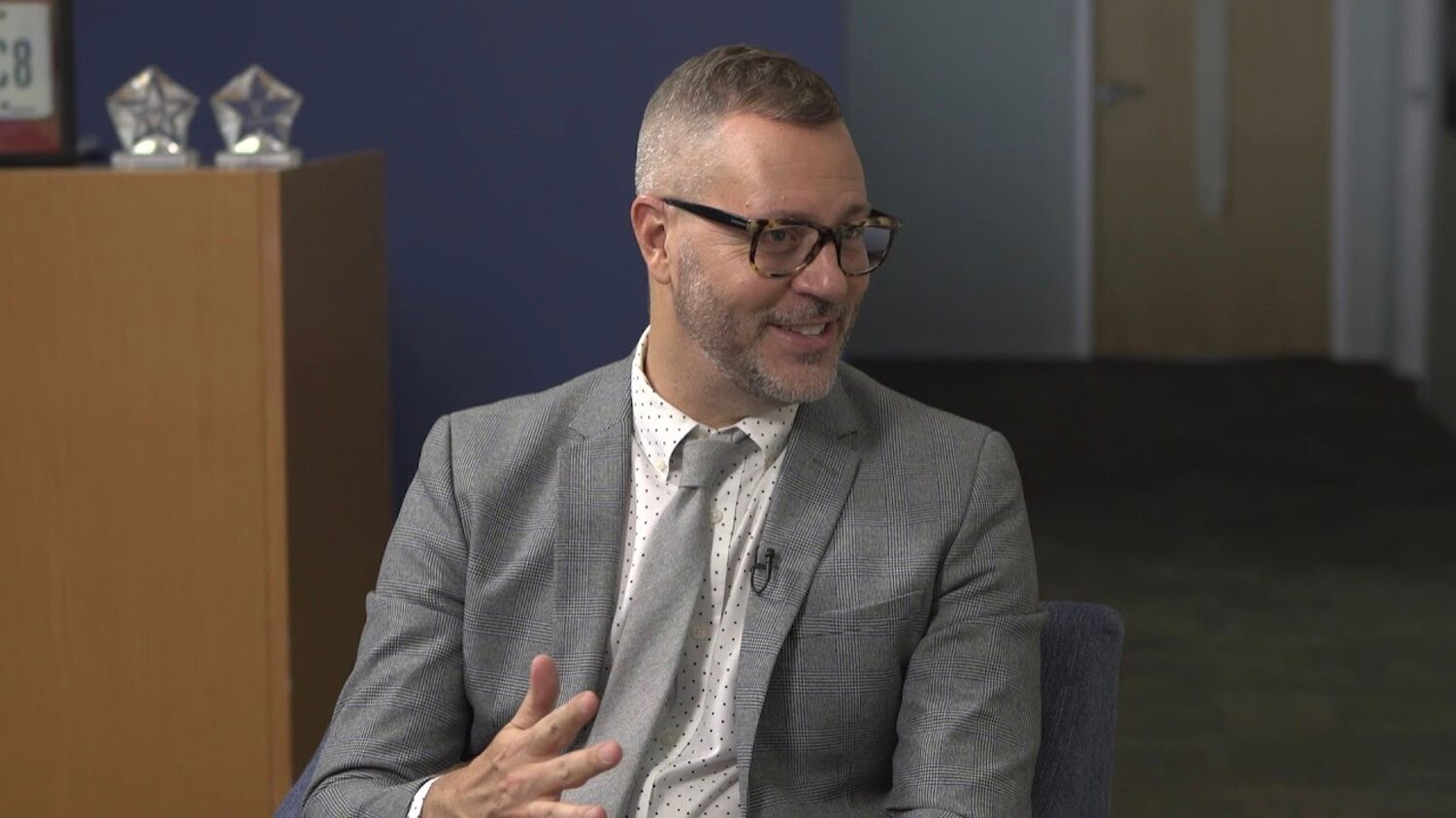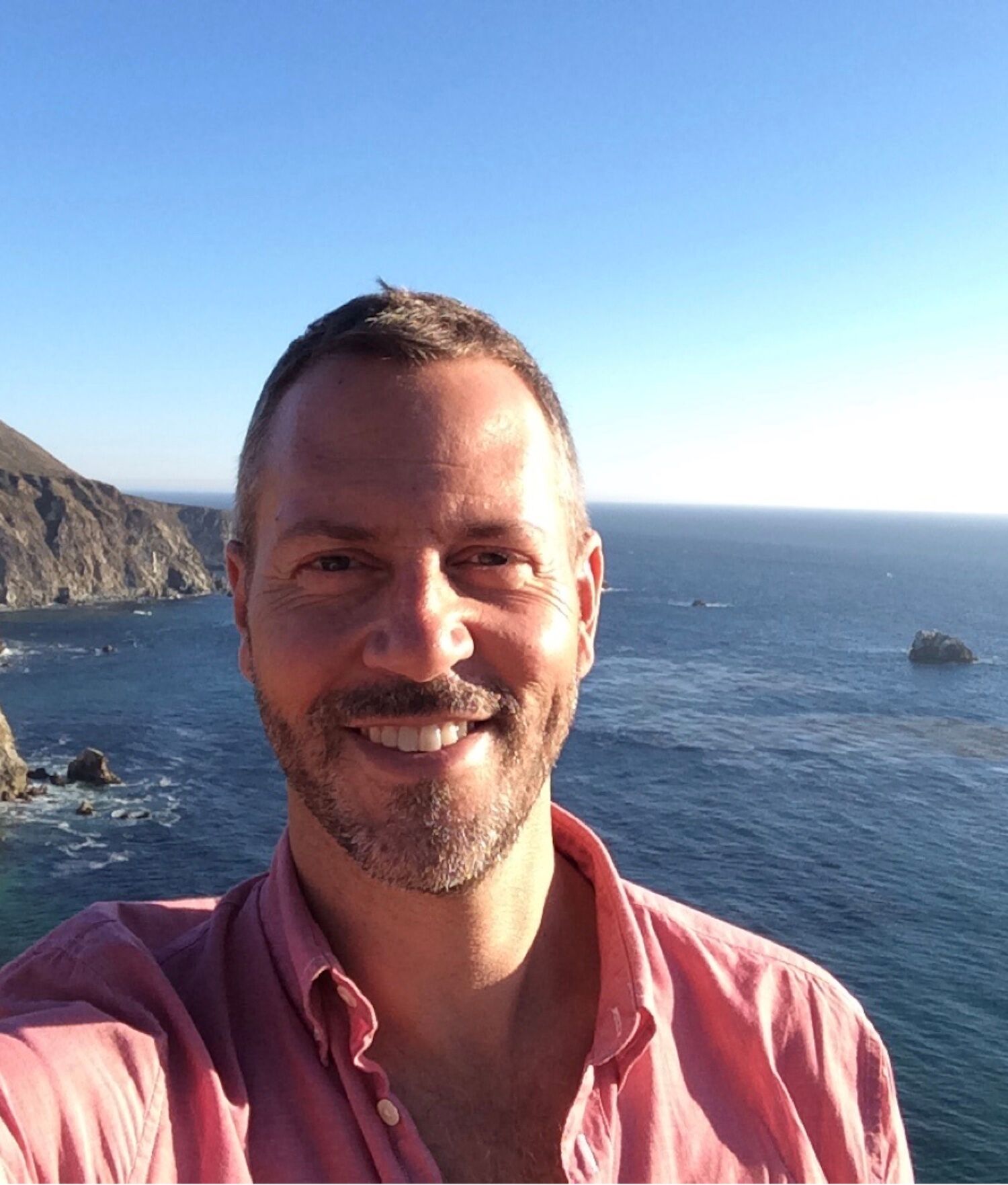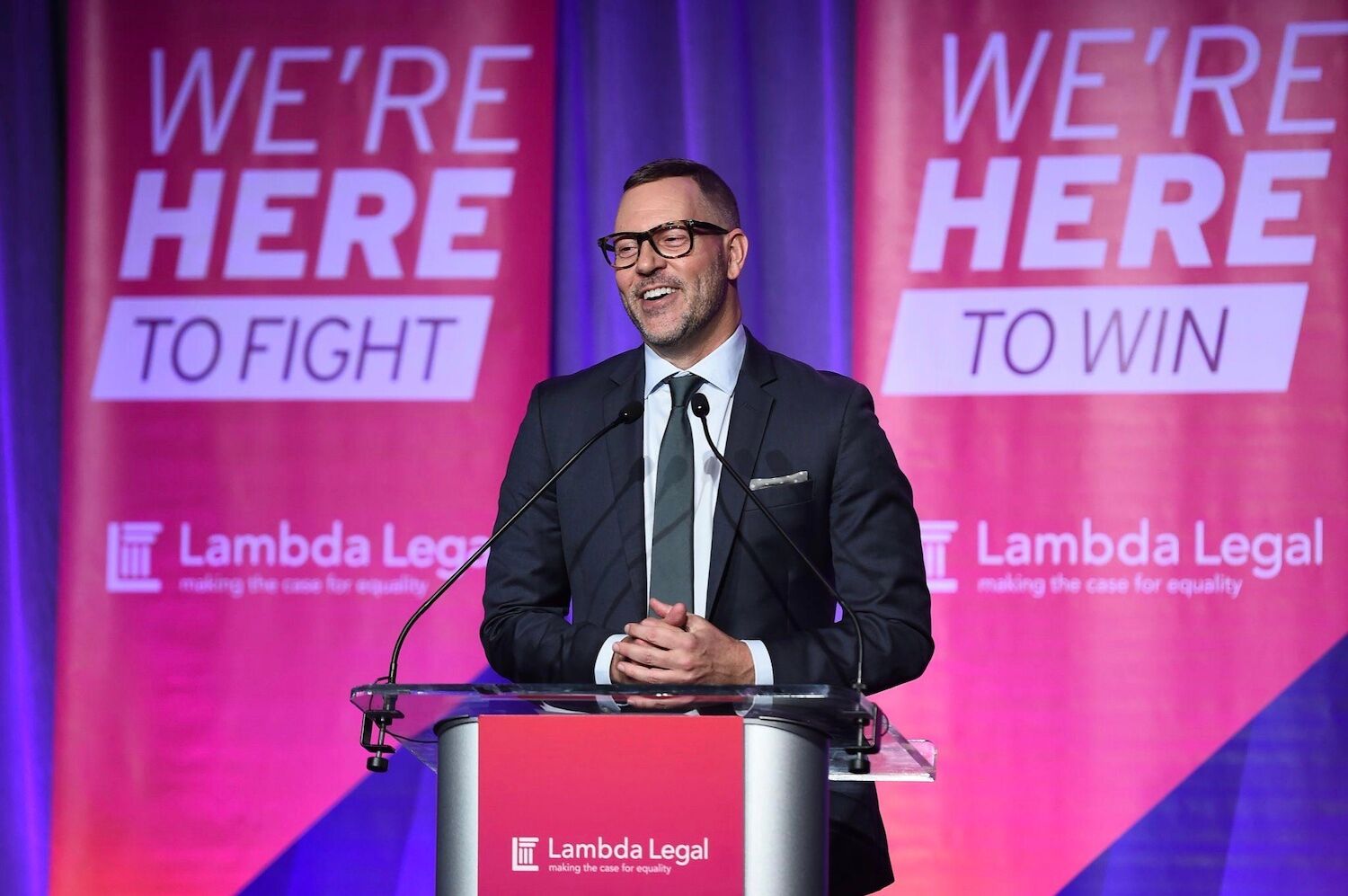Growing up in rural Georgia in the 1980s, Currey Cook loved belonging to 4-H, a traditional youth group where he served as a camp counselor.
But he could not have imagined the social circumstances of the youth he works with today in his role as a legal advocate for some of the most disadvantaged and mistreated LGBTQ young people in the country.
Cook is director of the Out-of-Home Care Project at Lambda Legal, the LGBTQ legal advocacy group, where he works on behalf of young people living in child welfare and juvenile justice settings, many of whom have experienced homelessness.
In that capacity, he lobbies federal and state governments on reform measures via litigation, law and policy development. In 2017, Cook co-authored “Safe Havens: Closing the Gap Between Recommended Practice and Reality for Transgender and Gender-Expansive Youth in Out-of-Home Care,” a report that shares the voices and experiences of trans youth in care settings and makes policy recommendations.
Never Miss a Beat
Subscribe to our newsletter to stay ahead of the latest LGBTQ+ political news and insights.
Cook is addressing a massive social problem. Twenty percent — about 57,000 — of all young people who reside in juvenile detention in the U.S. identify as LGBTQ, more than twice the number in the general population, according to a 2016 report by the Center for American Progress and the Movement Advancement Project. Queer kids are more likely to face bullying in school and rejection by parents. This makes them vulnerable to homelessness, which, in turn, makes them more likely to come into contact with the juvenile justice system.
“LGBTQ youth face bias in adjudication and mistreatment and abuse in confinement facilities. Finally, LGBTQ youth lack supportive services when leaving the criminal justice system, often forcing them back into negative interactions with law enforcement,” the report said.
“LGBTQ youth lack supportive services when leaving the criminal justice system, often forcing them back into negative interactions with law enforcement.”
2016 report by the Center for American Progress and the Movement Advancement Project
Cook’s passion for ending harm and bringing equality to queer youth was born in part of his own experience. “I had so much difficulty coming to terms with who I am and being able to be out in a professional context,” Cook told LGBTQ Nation. “Imagine how much more challenging that would be if you were in foster care or locked up. That inspired me to work in this field.”
Jylon Collins, who identifies as mixed race and bisexual, can attest to that inspiration. Now 24, he met Cook a decade ago at a crisis point in his young life. He’d been incarcerated in a juvenile facility in Texas, where he was subjected to relentless bullying.
“I’d had real mental health issues due in part to my identity,” Collins told LGBTQ Nation from his home in San Antonio, Texas. “I was having manic episodes and acting out. Kids were coming to my dorm just to beat me up I guess cause they thought I wasn’t masculine enough. Staff would pay these guys to harass me. … Honestly, it felt like no one understood me.”
Collins’ mother, Alenda, “my biggest supporter,” got in touch with Lambda.
“One day I was told I had a visitor, and there was Mr. Currey,” Collins recalled with a laugh. “He was the first person who listened and understood. We clicked, and he got me connected to people who could help.”

Before long, Collins’ life was heading in the right direction. He graduated from high school and then cosmetology school, and he’s about to start work in a salon. “I honestly did not think I’d ever be able to make it this far,” he said.
“Mr. Currey gave me the knowledge and the connections and the confidence that I could take and run with,” he said. “I could finally be proud of myself and get things going.”
LGBTQ Nation chatted with Cook just as Lambda scored a major victory: The U.S. Department of Health and Human Services terminated a policy that allowed faith-based groups to discriminate against LGBTQ people under the Religious Freedom and Restoration Act. Under the policy, federally funded child welfare agencies could turn away qualified prospective parents based on their sexual orientation or gender identity.
What is your reaction to the HHS ruling?
Everyone receiving services funded by HHS needs to know that they can turn to their government and expect they will act to address harm and prevent discrimination.
“Kids were coming to my dorm just to beat me up I guess cause they thought I wasn’t masculine enough…. Honestly, it felt like no one understood me.”
Jylon Collins, a former inmate in a Texas juvenile facility
Who is Currey Cook?
I attended University of Georgia where I was a broadcast news major. I was a radio reporter in college and ended up taking a communications law class and was really intrigued by the law, and with my first job out of law school, discovered a different area of the law: child advocacy. I found a mission in helping young people navigate the legal system and making it better for them.
Today I live in Brooklyn. I have been really fortunate to be able to work from home for Lambda throughout the pandemic. It was a departure for me since so much of my day-to- work used to be about being on the road and working with young people and organizations to advance nondiscrimination policies and affirming practices for youth who are in child welfare and juvenile justice systems or experiencing homelessness.
Now I do the same work from my Brooklyn apartment, working with advocates on the ground in places like Texas, Arizona, Florida and Nevada, trying to bring a national perspective to the work while lifting up the voices of LGBTQ youth who are involved in the judicial system.

What draws you to working on behalf of the most disadvantaged young people?
By the fifth grade I wanted to be a pediatrician. All the other boys wanted to be, like, a fireman. [laughs] I grew up on a farm in Georgia, and I was involved in youth groups like 4-H, where I was a camp counselor. I enjoyed working with youth and trying to make a difference.
When I moved to Alaska after law school, I met this amazing lawyer who represented kids in foster care and delinquency cases. And she said, “Given your background, this would be a great area of the law for you.” We’d be in court every day, working with children and families. It was the intersection of social work and psychology and the law and I loved it.
Does your fondness for young people make you want to be a parent yourself? We’ve seen a lot of progress on parental rights.
It is definitely something I have thought about, but for now I’m focused on and enjoying working with and advocating for children and youth.
“We’d be in court every day, working with children and families. It was the intersection of social work and psychology and the law and I loved it.”
Currey Cook
What was your own coming out experience like, and did that motivate you as well?
It was not easy navigating coming out myself. And I was just sort of seeing young people in foster care who people were just assuming were LGBTQ or nobody was talking about it. And when I finally did come out, they were asking me what to do. I felt I had to step up because nobody else in the community at the time was talking about this particular issue or doing anything about it. I need to gain some expertise because my own experience wasn’t relevant.
In this country, so many people see kids in foster care and think, “Oh, those poor kids,” but think it is someone else’s problem. But I was starting to see it as a legal system that could be improved and changed for the better much in the same way that we now see racism not as anecdotal, but systematic, and require systematic change.
Being in Alaska opened my eyes. While Alaska Native people comprise only around 19 percent of the population, they represent 60 percent of the children in foster care. So I saw up close how the history of racism in our country has manifested itself in terms of who gets funneled into these systems of care. I had so much difficulty coming to terms with who I am and being able to be out in a professional context. Imagine how much more challenging that would be if you were in foster care or locked up and had multiple systemic inequities driving you deeper into the system. That inspired me to learn more and work in this field.
“I felt I had to step up because nobody else in the community at the time was talking about this particular issue or doing anything about it.”
Currey Cook
What was your youth like?
I grew up in Oglethorpe County, Georgia, right beside Clarke County, where Athens is the home to the University of Georgia.
R.E.M. & The B-52s come to mind. It was an early queer scene. Were you more comfortable there?
Yes. It’s funny. Athens has always been a progressive spot in the state. But it was still a largely homophobic climate on campus. But at the same time everyone at the University of Georgia, where my dad worked, really embraced the art scene and music. So that was a place where LGBTQ people could exist and it would be OK. But growing up in rural Georgia in the 1980s, I had no reference or role model about what it meant to be gay.
What’s that like for the young people you work with today?
Even today there is so much misinformation out there, so much harm, kids face so much trauma and bullying and even violence, especially at the intersection of LGBTQ+ identity and race. That’s why we have such a disproportionate number of kids in the juvenile justice system and foster care system.
What’s changing?
The good thing is that even in some rural communities we are starting to have a much stronger presence. We no longer have to live on the margins. Because of broader societal changes, for a lot of young people it is very much a wonderful, ‘We’re here, we’re queer,’ situation. It is really forcing change, but, unfortunately, it can still expose them to harm. And people who work with young people need to step up and be their champions, especially when they are in the foster care and juvenile system. LGBTQ young people have the same need to be loved, to be supported and to have the opportunity for a safe and healthy life as all kids do.

What are the obstacles to this outcome of more love and support? Is it these legal exemptions to nondiscrimination laws that seem to have the support of the Supreme Court?
There is this idea out there that because you are a person of a particular faith or have a particular faith belief that that just allows you to have an exemption or an exception to nondiscrimination requirements, and you just get to do whatever you want. It’s a real threat, the idea that if you’re receiving government dollars you still get to discriminate. And the current Supreme Court seems more and more inclined to permit this.
How do we combat this trend?
The more that we have programs where youth and their families can access information that promotes family acceptance, the better off we are from a public health and community safety perspective. Programs and information that help parents and relatives understand how their behaviors are sometimes inadvertently causing the harm that they don’t want for their kids, and how they can change those behaviors and learn to accept them as they are. That will go a long way toward preventing the epidemic of homelessness that we have seen and the number of kids in foster care.
Justice system involvement is so heavily tied to conflict around family rejection and then homelessness. So the game is really about avoiding the legal system’s involvement entirely. We need to reimagine what we’re doing. Rather than placing children and youth in detention, or group homes, or residential treatment facilities, we need to support them so they can stay safely with family and in their communities.
“LGBTQ young people have the same need to be loved, to be supported and to have the opportunity for a safe and healthy life as all kids do.”
Currey Cook
Institutions are not good for any kid, and they’re particularly harmful for LGBTQ youth because of a heightened risk of bullying, harassment, and victimization. And if it’s really not possible for them to be with parents or kin, then we really need to make sure that they’re able to be in foster family homes, and not incarcerated. That’s just damaging.
So what’s it like to work with kids who have entered the juvenile justice system?
I’m constantly amazed by their fortitude and their self-advocacy and intelligence. I think we often underestimate young people’s interest in social justice and reform and drive to improve things so that other people are not harmed like they have been harmed.
I got a chance recently to talk to a person in foster care in Texas recently, and there’s been so many harmful things going on there. And he knew exactly what happened and why it happened. He had read child welfare agency policy, had testified before the legislature to fight off horrible anti-trans legislation there. He had great insight into the political situation and concrete ideas on how the child welfare system can and should do better. He’s 18, and is such an astute and sophisticated advocate. I had no idea at that age.
What accounts for this level of sophistication?
Part of the answer is not good. It’s survival and not having a choice about being an advocate. It’s a necessity. So many youth are forced to arm themselves with information and get out there because it’s about self-preservation. On one hand, the engagement and the sophistication is fantastic. On the other hand, in a perfect world, that really isn’t something an 18-year-old should have to be doing. At that age, they should be enjoying life and young adulthood, not fighting for basic human rights.
“I’m constantly amazed by their fortitude and their self-advocacy and intelligence. I think we often underestimate young people’s interest in social justice and reform and drive to improve things.”
Currey Cook
Like going to the prom.
You should have the expectation of safety and being treated with dignity, like everyone else.
Does this bode well for the future? Large minorities of Gen Z are now identifying as queer at the same time racial minorirties are on track to be the majority. The future is very queer, very trans and very BIPOC, all mixed together.
Honestly, in many ways, the adults just need to stay out of the way and pass the torch. The amazing advocacy of so many LGBTQ youth and young adults today gives me tremendous hope for the future.
This interview has been edited for concision.
Chris Bull is editorial director of Q.Digital


